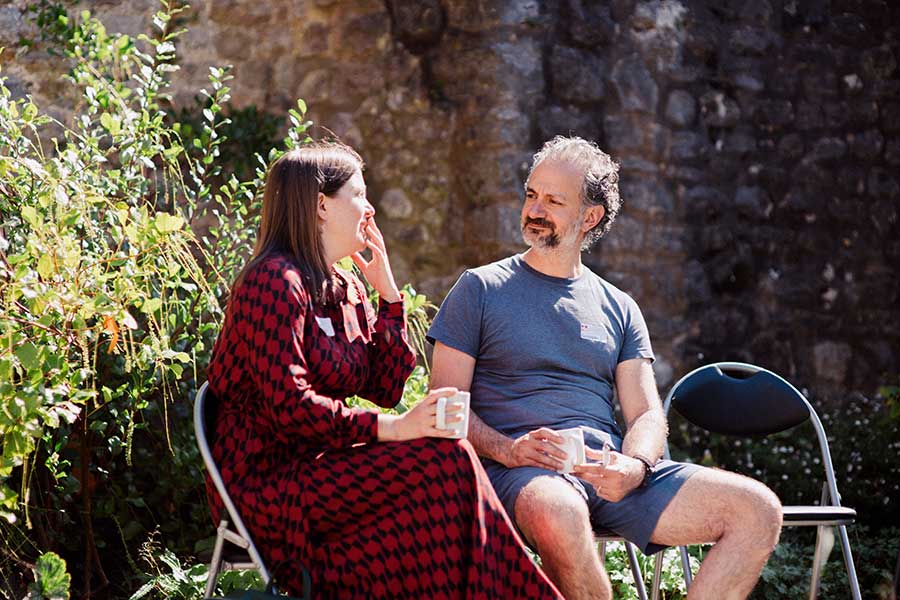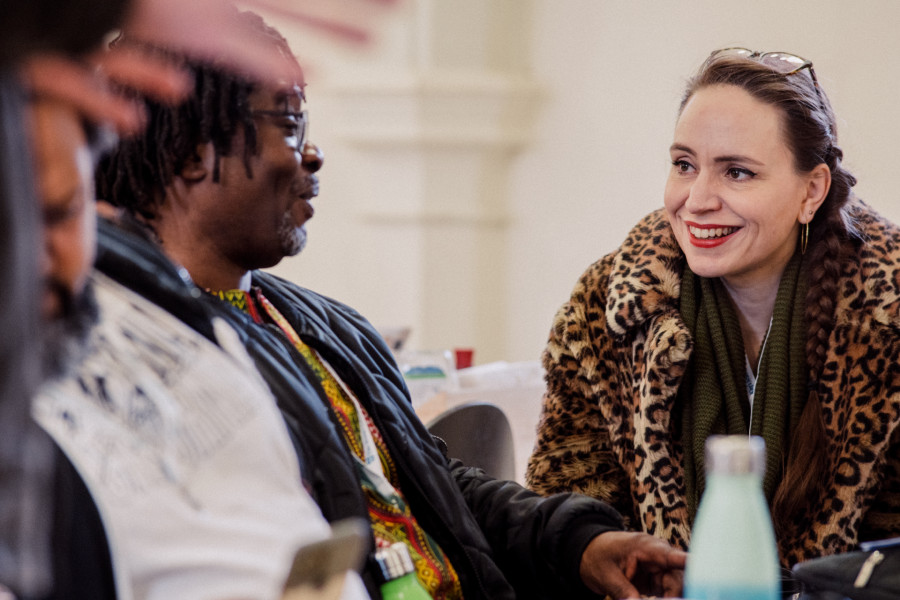
This blog post explores embodied spirituality and how to make it part of your everyday life.
Ever considered how your body plays a role in your spiritual life?
Embodied spirituality is about making that connection, bringing together your body, emotions and spirit. It’s not just something you think about or feel in your mind – it’s something you live out in your body and the world around you.
Instead of treating the body as separate from the spiritual, embodied spirituality reminds us that our physical selves are at the heart of our spiritual journey. Whether through our emotions, actions or relationships, our bodies play an essential role in how we experience spirituality.
The body as a sacred vessel
In this approach, the body is viewed as a sacred vessel. Through our bodies, we experience God and express our deepest spiritual truths.
Our senses, emotions and actions aren’t barriers to spirituality—they’re pathways to connect with God, for example, the simple acts of breathing mindfully, showing kindness to a stranger, or spending time in nature.
When done with intention, these everyday moments can be spiritual experiences; embodied spirituality challenges the traditional idea that the body is less important than the soul.

Combining body and spirit
Embodied spirituality brings together both the body and spirit. It rejects the idea that the spiritual and physical worlds are divided.
Instead, it embraces them as one. Our physical needs and sensations make who we are, and acknowledging them helps us on our spiritual journey.
Think about how exercise, meditation, or even your weekly dance class can help you connect with yourself and God. Even simple activities like eating, walking to work or chatting with a friend can become spiritual when done with presence and mindfulness.
Connecting to people and the Earth
Embodied spirituality doesn’t stop with the individual. It extends to our relationships with others and with the Earth.
This connection is sacred if we are deeply connected with our communities and the planet.
Care, justice, and compassion are key parts of embodied spirituality because they reflect the spiritual significance of our shared human experience. In traditions focused on ecological and social justice, caring for the environment or working for social change are spiritual practices that respect the sacredness of all life.
‘The Word became flesh’
For Christians, embodied spirituality is grounded in the Incarnation.
The confession that “the Word became flesh” speaks of how God entered the world physically in the person of Jesus Christ. Jesus experienced the limits, joys, and suffering of human life.
This truth shows us that the body is not unspiritual. Instead, it’s through the physical world that God is revealed. Jesus’ life, especially his care for marginalised people, is a powerful example of how embodied spirituality is lived out in acts of love and justice.
Watch our video to find out more about embodied spirituality
Embodied spirituality is at the core of the Spirituality and Discipleship Taster Term at St Augustine’s.
In this video, our principal, Alan Gregory, explains more.
How can you practice embodied spirituality?
You might already be practising embodied spirituality without even knowing it! Here are a few simple ways to get started or deepen your practice:
Mindful movement
Activities like walking, pilates, or even energetic dance classes like Zumba help you stay aware of your body and keep you focused in the present moment.
Meditation and breathing
Daily practices focusing on your breath and body can bring mindfulness and spiritual clarity.
Rituals and sacraments
In many religions, rituals like the Eucharist use items such as bread, wine and water to symbolise a deeper connection with God.
Art and creativity
Music making, writing, painting, or anything creative is another way to connect with God.
Acts of service
Helping others—whether volunteering, offering support or simply being there for a friend—honours the sacredness of both body and community.
Why does embodied spirituality matter?
Embodied spirituality invites us to slow down and reconnect with our bodies, the world and each other. It reminds us that spirituality isn’t just something in our heads—we do it through our daily actions and experiences.
This view also rejects harmful cultural messages that push us to disconnect from our bodies, like overworking or neglecting self-care. Seeing our bodies as sacred can create a deeper sense of well-being and balance in our spiritual lives.
Want to learn more about spirituality? Book a taster event!
If you want to learn more about spirituality, our taster events in West Malling or Central London are ideal.
You will sample what it’s like to study at St Augustine’s College of Theology, meet our excellent lecturers, sit in on classes, chat with current students and get a real flavour of what we are all about.

